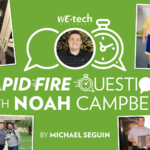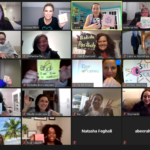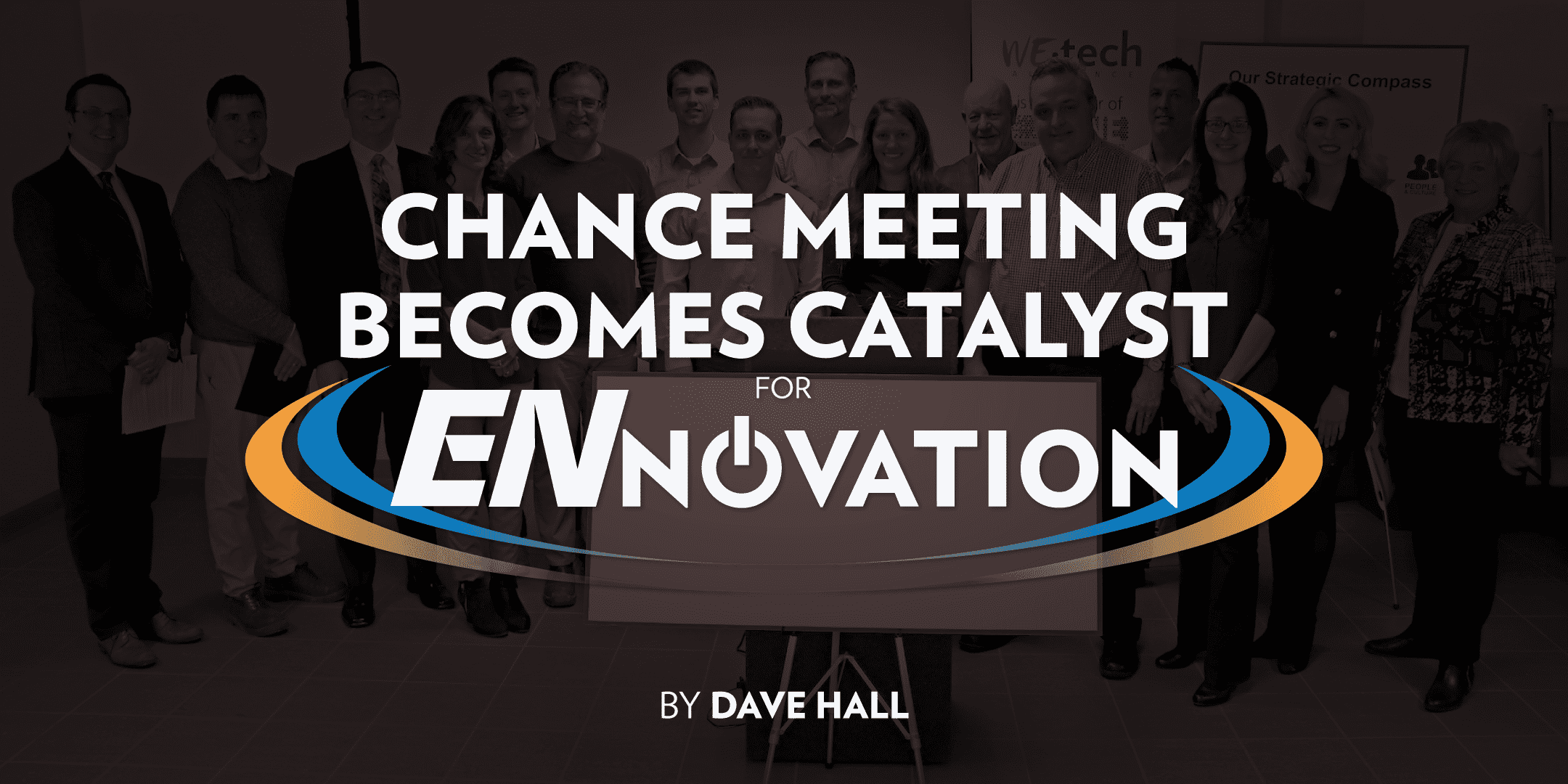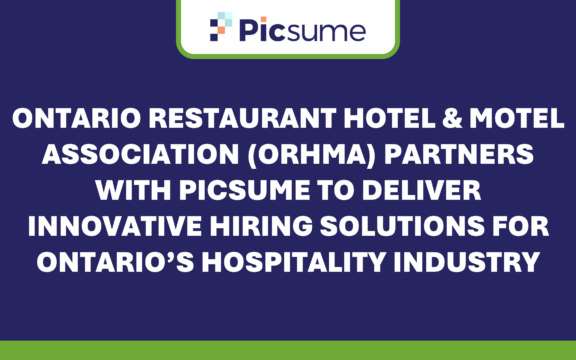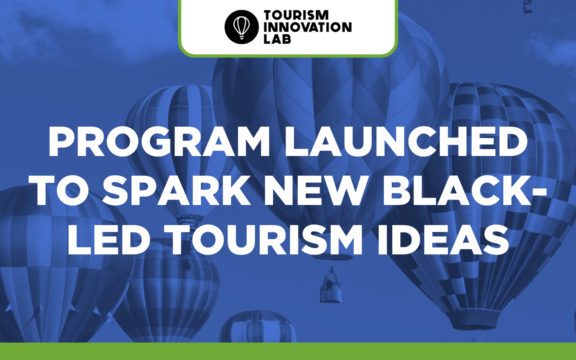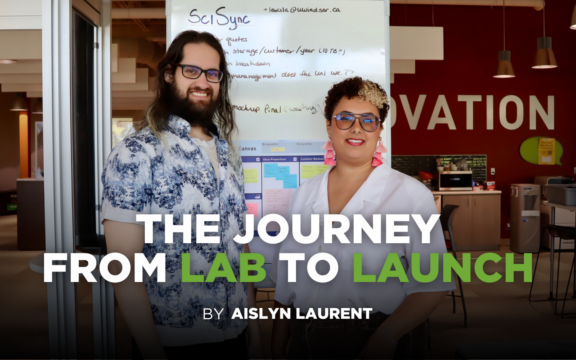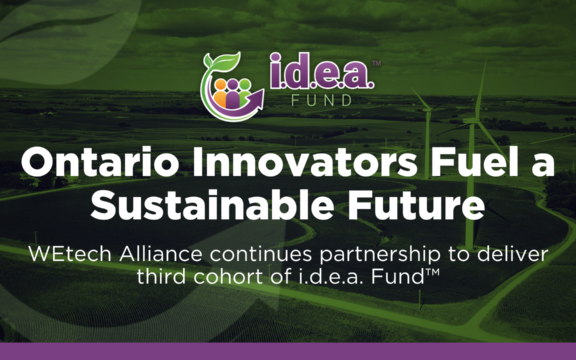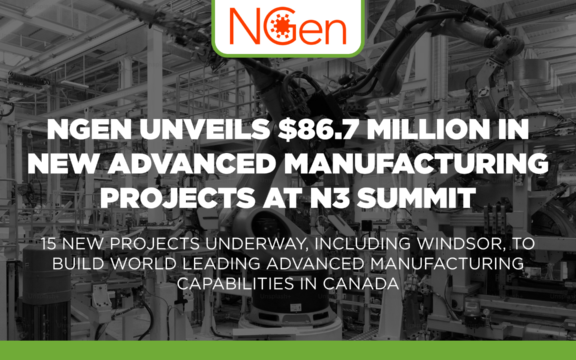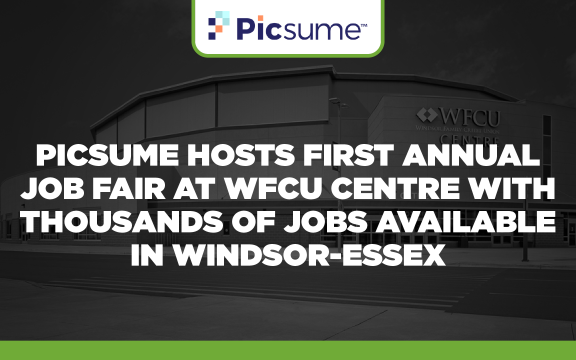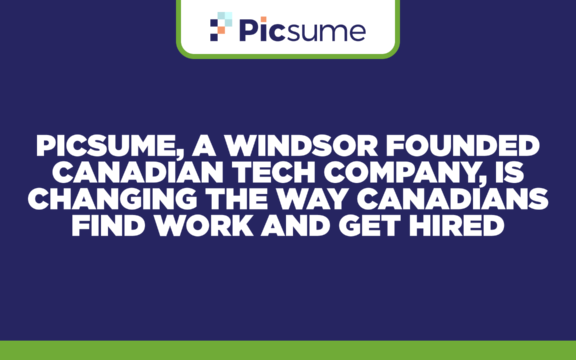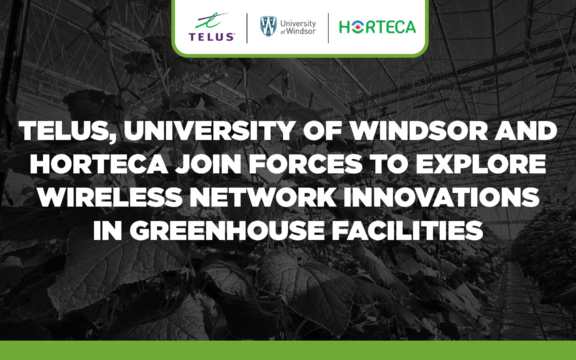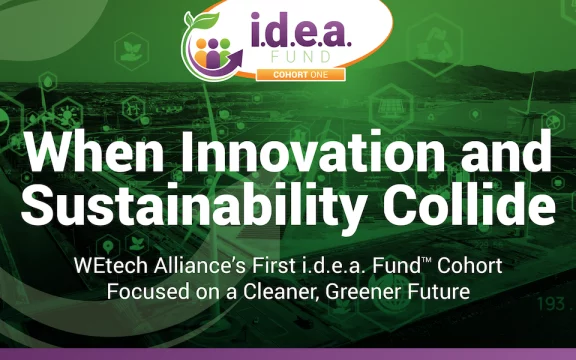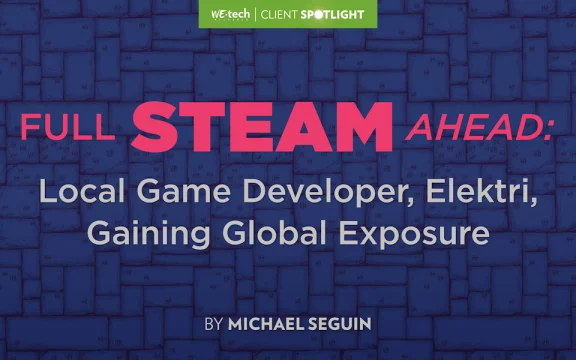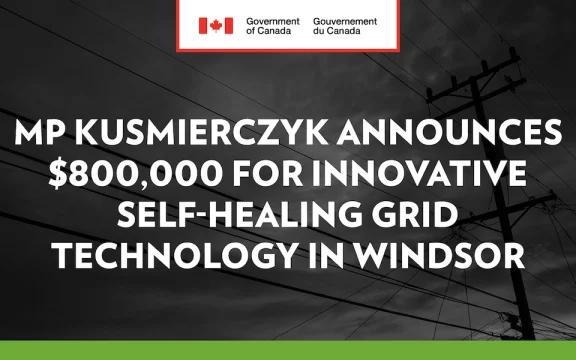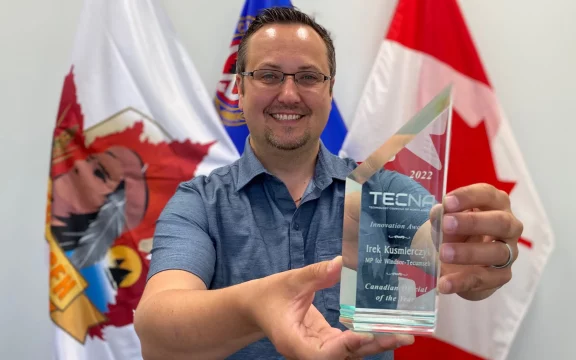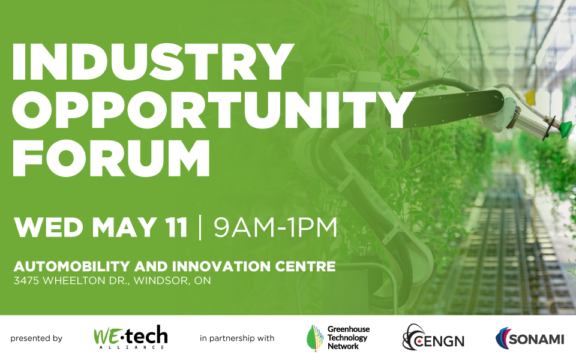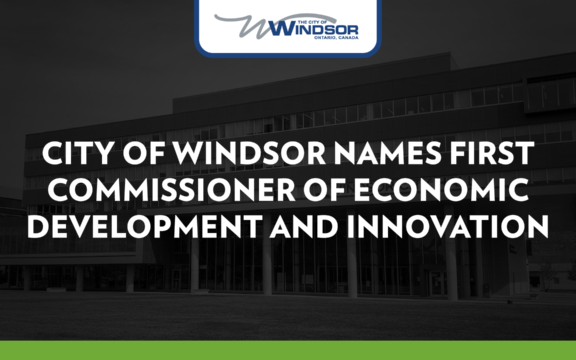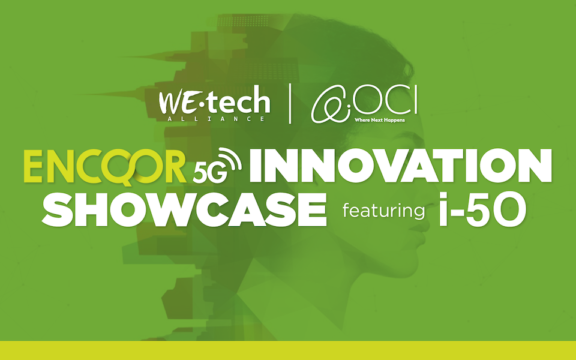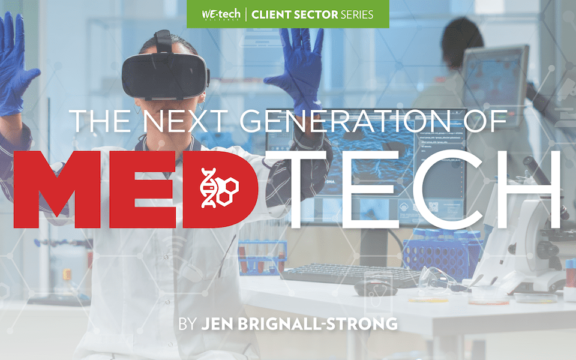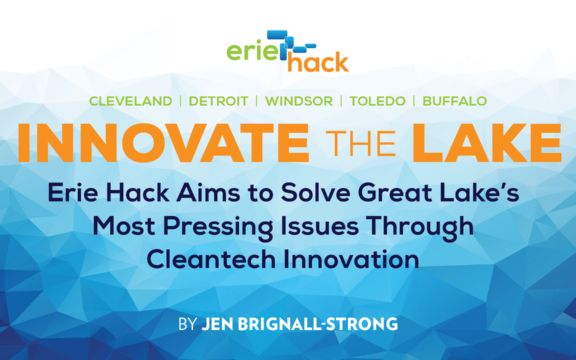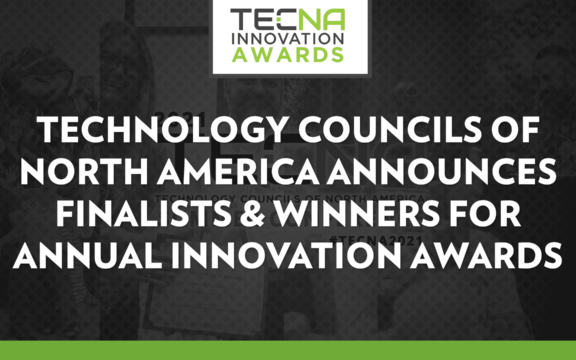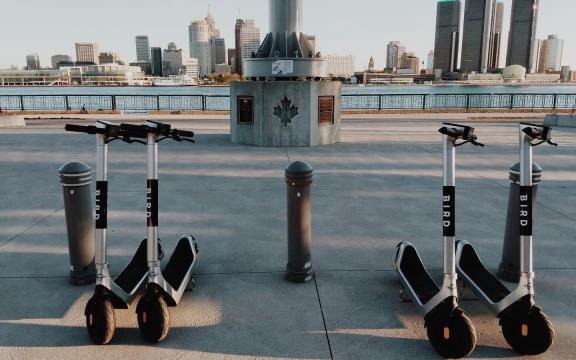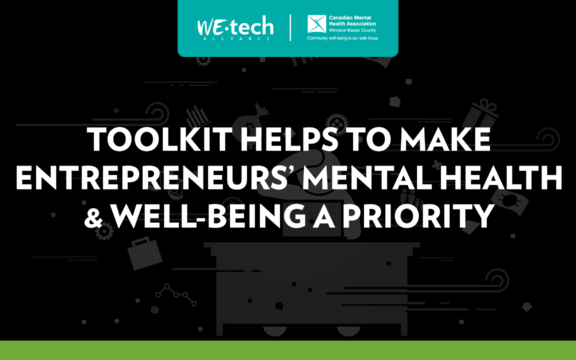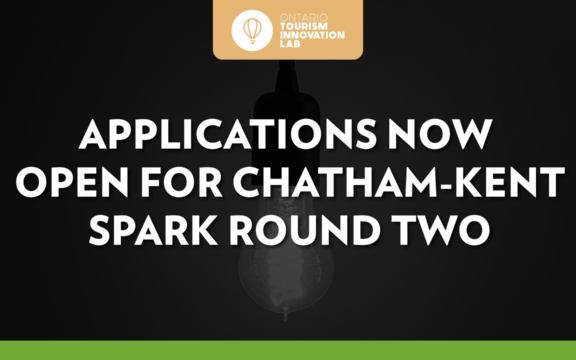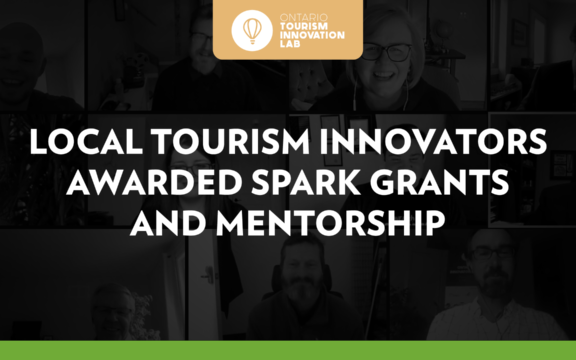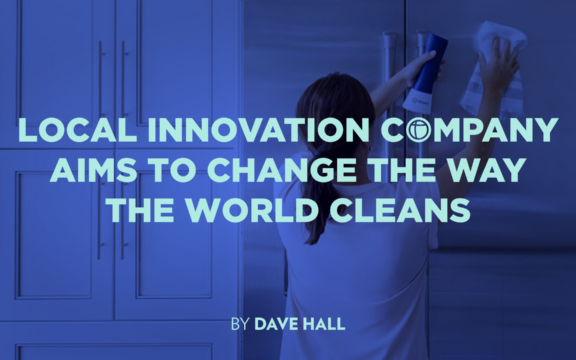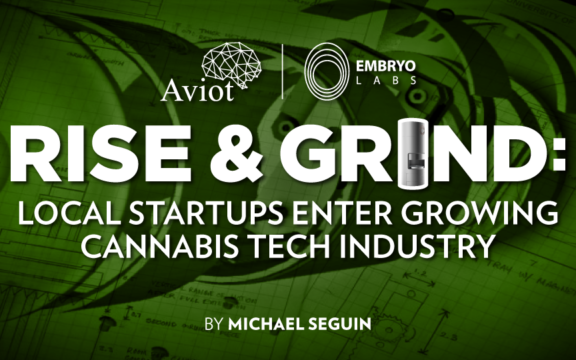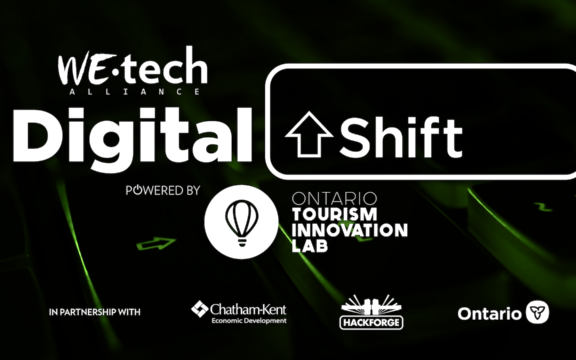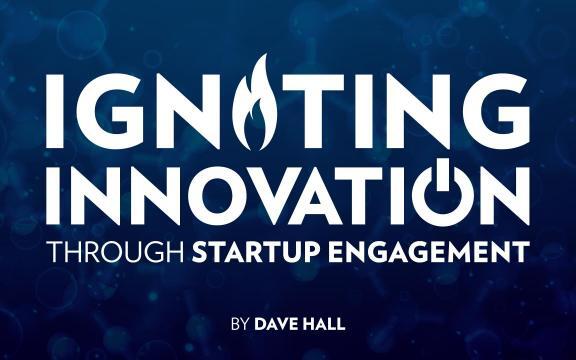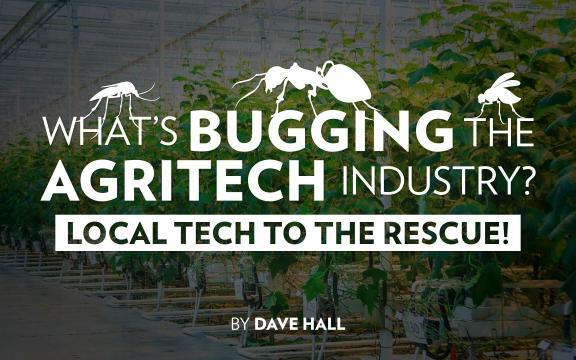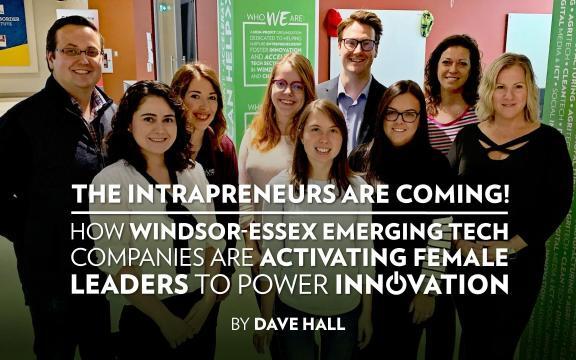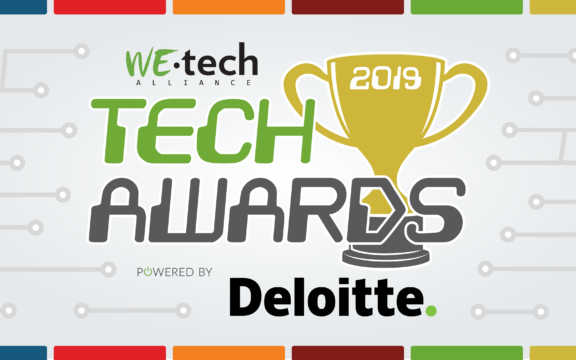A chance meeting in the hallway of WEtech Alliance’s offices at the University of Windsor’s EPICentre three years ago has led to a revolutionary new project at ENWIN Utilities which has empowered employees and led to changes in how the utility company conducts its business.
When Helga Reidel, Chief Executive Officer of ENWIN, bumped into Irek Kusmierczyk, then WEtech’s Director of Partnerships and now an MP for Windsor-Tecumseh, and Adam Frye, WEtech’s Director of Business Innovation, it led to a lengthy discussion about ENWIN’s ENnovation catalyst project.
“We had been thinking about introducing a way of empowering staff and getting them more involved in innovation projects,” said Reidel. “And when Irek and Adam pitched the idea of a partnership, we decided it was a great opportunity for all of us.”
Within a year, Enwin had embarked on a project designed to activate frontline employees to offer grass-roots ideas with the aim of making the company more responsive to customers and streamlining processes within the company.
“As a student of innovation science, I could see how partnering with WEtech and utilizing a framework they had in place would be beneficial to us and our employees.”
“People in the trenches have a different lens on what customers need and expect from us as a utility provider,” explains Barry Leavitt, who was chosen to head up the project. “Not taking their ideas into account was a gap in our strategic planning process.”
“As a student of innovation science, I could see how partnering with WEtech and utilizing a framework they had in place would be beneficial to us and our employees,” added Leavitt.
Leavitt was assisted in the project by Rosana Kemsley and Dragan Savic.
The project goes way beyond the traditional ‘suggestion box’ and encourages volunteer participants to develop ideas and takes them on a 12-month design-thinking journey during which time they have an opportunity to explore their own passions for growing ENWIN from within.
There have been two yearly cohorts with a maximum of 15 employees in each. At the end of each process, selected employees utilize a ‘pitch day’ to present their ideas and business cases directly to the executive leadership team.

Catalysts from the 2018 cohort brainstorming ideas for their projects
Since changes within an organization often come with a price tag – either financially or in terms of employee time – a business case is required in order to make the pitch complete and determine whether or not the recommendation is feasible.
Alison Sorrell, a human relations generalist with six years seniority, was part of the first cohort.
“We already had a performance management program which I happened to oversee and I wanted to focus on it further and determine why the program wasn’t motivating employees as we thought it should,” explained Sorrell.
“We created a new performance review form, a new timeline and developed a more intensive training program and more opportunities for feedback,” said Sorrell. “We’re hoping that staff will see some changes in the process and that managers will have an opportunity to get positive feedback.”
“I think we’re off to a good start but it will take a year or so to see final results,” added Sorrell.
Since it takes time to implement large-scale changes, it will likely be the end of 2021 before employees are able to see what impact it has had on their careers.
Reidel said that other ideas included improving employee orientation by providing tours of ENWIN’s various worksites and elevating the company’s game in terms of training and employee interaction.
Additional ideas included implementing technology which will allow call centre employees to have more real-time information regarding customer inquiries and an app which customers can download onto their smart phones so they can pay bills and manage their utility accounts.
Staying connected while working remotely
Reidel said that with more and more employees working from home, employee interaction has become more of a challenge and employers have to make a greater effort to create interaction opportunities such as regular communication with staff and employee videos.
Leavitt said there have been eight ideas pitched to management, including five in the current cycle, and it has led to an already more enthusiastic and productive workforce.
“We also needed to show our employees that management was taking their ideas seriously otherwise the project would die,” said Leavitt. “We can’t promise to implement every idea but we can promise to take a hard look at all of them.”

Catalysts from the 2018 cohort pitch their projects to ENWIN Chief Executive Officer Helga Reidel.
Pitching the ideas in person rather than on paper also gives employees an opportunity to showcase their presentation skills in a formal setting, adds Leavitt.
And while ENWIN has committed to a third cycle, there is no hard and fast timetable in place because it’s a lengthy process and takes up a considerable amount of staff resources.
“We want to take the time to make sure the ideas we have adopted are in place and running smoothly before we commit to anything else,” said Reidel. “Staff needs to see some results from the first two cohorts.”

